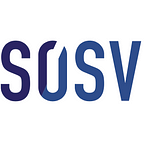3 things we learned from the “Biotech & Climate” Investor Panel
Last week IndieBio was proud to host three top biotech and climate investors to a panel as part of our event series. This one has focused on the trends and opportunities that the pandemic has brought these past few months, especially as it relates to planetary and human health.
Jenny Rooke, Ph.D. is the founder of Genoa Ventures, named after her love for sailing and the sail that brings stability and performance, and she invests in Seed and A rounds where the focus areas are the tools and technologies that enable the engineering of consumer and industrial bio (no therapeutics). Ela Madej is founding Partner at Fifty Years VC, where they invests in Seed rounds as a generalist fund to help solve the biggest challenges in the world right now. Laurie Menoud brings expertise from the helm of At One Ventures where they are investing “where humanity is a net positive to nature,” with some emphasis on structural targets like agriculture and food to help reduce and capture the most carbon. IndieBio Chief Scientific Officer and Partner, Jun Axup, Ph.D., moderates the panel.
Here are three insights that we found interesting and worth sharing in case you missed the webinar.
1. Despite the pandemic we are going to burn as much carbon as we did last year.
We can look outside our windows and see that people are driving less, and people are staying home, but the sad part is that this is only a small fraction of the climate problem. As Menoud puts it, “this means that staying at home and not taking the car is not the solution to climate change. We see the opportunities to reproduce what we need while giving back to the planet.” This means new emerging technologies in the cultured food space, and other food production systems that can lower the impact of farming. There are new opportunities to decarbonize concrete production which alone comprises of 8–10% of our annual carbon emissions.
2. Biotech revolution is exciting not just because of the volume, but also cross-pollination.
While math and physics have the privilege of being considered among the more “harder” sciences, biology’s “squishier” position gives it one advantage: It’s able to take the insights from more concretized disciplines and incorporate them into the field. This gave birth to newer multidisciplinary fields such as computational neuroscience and optogenetics. Biology, as it turns out, is fertile ground for the cross-pollination of ideas.
As Rooke puts it: “What I think is going to happen in this moment is when founders cross over traditional divides. Masters at one discipline and coming to another are really exciting. This is going to attract more founders from different disciplines. We’re just excited to see what is going to come from the additional volume but also the additional insights.”
Madej expands on the areas that are ripe for disruption, including the continuous monitoring of human health (“it’s crazy that you have to walk into a doctor’s office to get your vitals measured”), better solar panels and HVAC systems, and removing animal models from our systems.
3. Get your investor to trace you
Our panelists here see this as an important time to stay active investors: Madej says that she has not changed her investment thesis; Rooke says that she’s focusing on switching back their focus to new opportunities after taking some time to tend to her current portfolio. “There are a lot of delays, but other than that, nothing has changed.” However, founders might notice that pearls have been clutched a little tighter these past few months. Our panelists here remarked on the state of risk capital during the pandemic possibly tightening up — they’re seeing strategics and a lot of other firms focusing on their current portfolio companies right now and putting less emphasis on new deals.
What is a founder to do during these times? Menoud says she recommends getting your investor to place what she calls “tracer capital” which is a small amount of money that an investor puts in to help them learn more about your company and setting them up for the possibility to lead your next round.
-
Thanks so much to these insightful investors for their time to share with us and the world what they’re doing to help catalyze change on the planet. Keep in touch to be informed of future events and our upcoming Demo Day on October 27th and 28th, 2020.
Keep up with our community. Subscribe to the SOSV newsletter, and follow us on Facebook, LinkedIn, and Twitter!
Originally published at https://medium.com on September 30, 2020.
